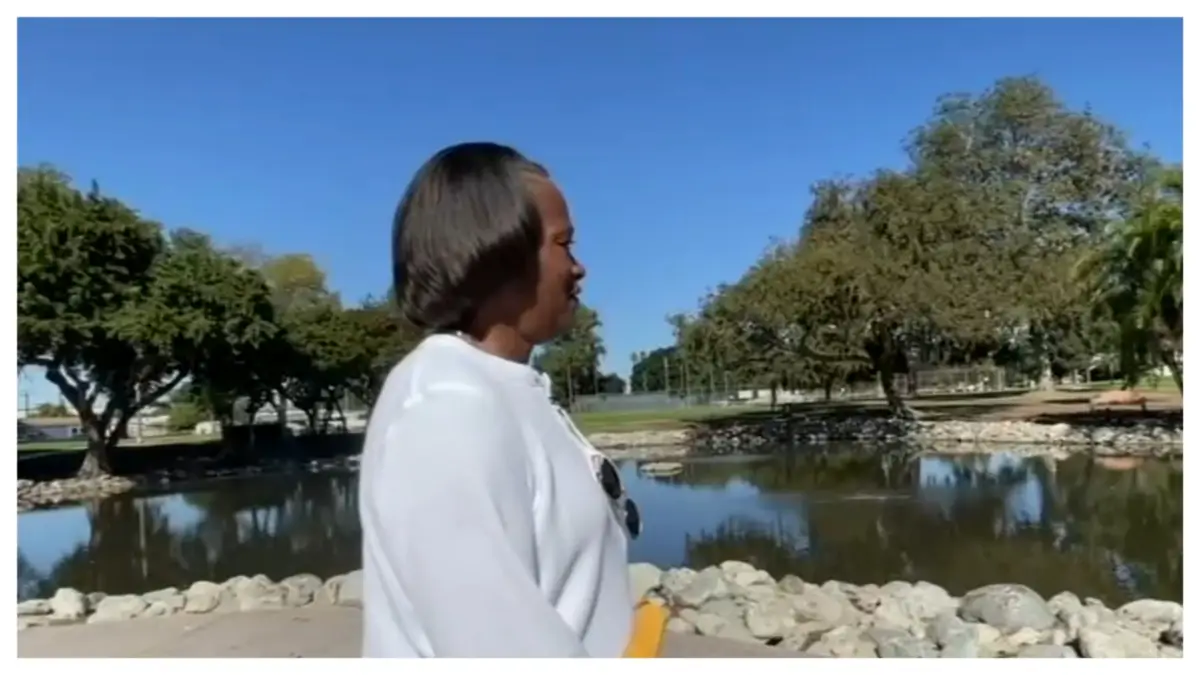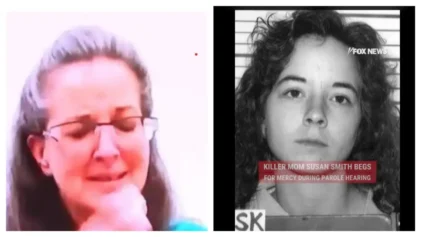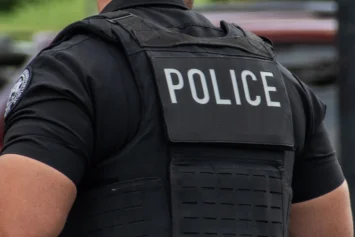A Black woman who was sterilized without her consent during a medical procedure while incarcerated in a California state prison has been granted a $35,000 reparations payment after years of appealing her case.
The decision by the California Victim Compensation Board to award the payment to Geynna Buffington could mean that hundreds of other people sterilized by the state whose applications for reparations have been rejected could also be eligible to receive such payments.

Buffington, now 58, was released from prison at age 40, and tried to have a baby for over a year, unaware that a procedure she had at the Central California Women’s Prison in Chowchilla a decade earlier would make that unlikely, reported CalMatters.
In 1998, Buffington underwent a cryogenic ablation in order to treat what a prison doctor told her was an abnormal pap smear indicating precancerous growth. The procedure freezes and destroys endometrial cells in the uterine lining and should not be done for people who have any desire for future childbearing, according to the American College of Obstetricians and Gynecologists.
Buffington was not informed of how the procedure would affect her future fertility.
“That is so humanly low for someone to make the decision that I don’t deserve to have children because I’m incarcerated,” Buffington said. “I would have been a great mom.”
She applied for compensation through a reparations program enacted by California in 2021 for people who were forcibly sterilized while in state prisons, state-run hospitals and homes, but was denied four times by the compensation board, which argued that ablations don’t qualify as sterilizations under the law because the procedure “was performed to treat her underlying medical condition” and “does not eliminate fertility.”
Alameda County Superior Court Judge Michael Markman ruled in June that the compensation board wrongfully denied Buffington reparations, finding “Sterilization is not defined by the statute, but the parties agree that the term is unambiguous and that a sterilization procedure results in a permanent inability to reproduce.”
The state victim compensation board had argued that intent to sterilize is required under the law, which was enacted to bar forced sterilization programs such as a eugenics policy often associated with Nazi Germany (as well as the eugenics policy enforced in California from 1909 to 1979).
Markman wrote that such intent is not required, and that “a lack of informed consent, which is alleged here, entitles a claimant to compensation even if the procedure is medically necessary or was for the purpose of birth control. … Informed consent is a linchpin of the statute.”
Buffington told ABC 7 last year as part of their three-part series on the topic, “I don’t remember signing any consent, and I know for a fact that no one talked to me because if I would’ve even heard the word ‘you can’t get pregnant,’ ‘you may not be able to conceive’ or anything, I would have held out.”
The judge also took issue with the state’s expert testimony that endometrial ablation “does not eliminate fertility” and its reliance on an online medical source that explained that “pregnancies may occur” after the endometrial lining has been removed. He noted the same excerpt also advised that pregnancies are “not normal” after such ablations, concluding that it “does not suggest that fertility is maintained after the procedure.”
Markman ordered the compensation board to reconsider Buffington’s case “without mistakes of law.”
On August 29, a compensation board hearing officer did so, finding that her “cryotherapy ablation meets the criteria for forced or coercive sterilization as defined by the Legislature,” and approved her application for compensation. The next day, the full board adopted that decision.
The decision gives new hope to other women previously denied reparations awards by the board after undergoing endometrial ablations and other medical procedures that rendered them infertile while in state custody.
The California Victim Compensation Board has denied a majority (75 percent) of more than 500 applicants for the reparations program and repeatedly rejected ablations as worthy of consideration, according to a year-long investigation by UC Berkeley’s Investigative Reporting Program and KQED. The majority of applicants self-identified as Black or African-American, KQED reported.
The reparations program was created to address the longstanding practice in California since the early 1900s of forcibly sterilizing more than 20,000 people — disproportionately poor women, people of color and people with disabilities — in state-run homes and hospitals under the state’s eugenics laws, which were repealed in 1979, reported CalMatters.
But the practice continued, according to a state audit in 2014, which found that at least 794 people in state prisons had undergone medical procedures that “could have resulted in sterilization” between 2005 and 2013.
According to state prison medical records obtained by KQED, a notoriously “aggressive” doctor at Valley State Prison in Chowchilla, James Heinrich, ordered at least 80 ablations between 2006 and 2012.
In 2013, the Center For Investigative Reporting quoted Heinrich as saying that the state wasn’t paying doctors a significant amount of money for the sterilizations “compared to what you save in welfare paying for these unwanted children — as they procreated more.”
After the court ruling and compensation board decision in Buffington’s case, on Sept. 30 Gov. Gavin Newsom signed a law that gives sterilization survivors who were previously denied until January 1 to file an appeal. The program, which was slated to end in September, has been extended to January 2026.
The victim compensation board told CalMatters that it is sending letters to all claimants who previously received denials, informing them of their ability to request another review of their case.
“This ruling indicates the need for wide sweeping justice that was not met,” said Cynthia Chandler, an attorney who helped draft the reparations law. “I hope this ruling provides some level of precedent to force the compensation board to be accountable.”
Last week Buffington received her reparations payment, which she said she plans to save for retirement. She now works for a nonprofit that serves homeless and low-income families in Los Angeles, and as a certified peer support specialist for people in recovery.
“I felt like some justice was being done, that I was being seen,” she said. “That was a terrible thing that happened to us. And it doesn’t deserve to be overlooked.”


